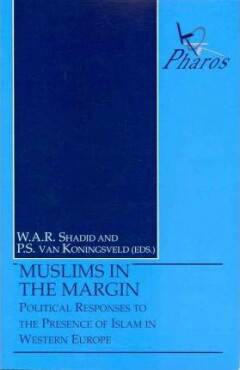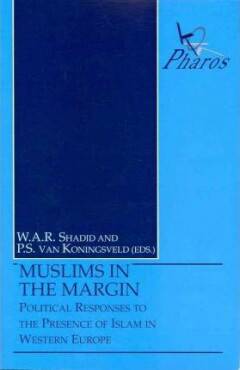
- Afhalen na 1 uur in een winkel met voorraad
- Gratis thuislevering in België vanaf € 30
- Ruim aanbod met 7 miljoen producten
- Afhalen na 1 uur in een winkel met voorraad
- Gratis thuislevering in België vanaf € 30
- Ruim aanbod met 7 miljoen producten
Zoeken
Muslims in the Margin
Political Responses to the Presence of Islam in Western Europe
War Shadid, Ps Van Koningsveld
Paperback | Engels
€ 30,74
+ 61 punten
Omschrijving
The involvement of minorities in politics has been the subject of a considerable number of studies. However, these studies are rarely concerned with the political role in Western Europe of both Islam as a mobilising factor, and the Muslims as a religious group comparable with other confessional groups creating political parties. The importance of political participation of Muslims for the improvement of their social, economic, and cultural position as well as for the establishing of religious infrastructure, has been widely recognized by politicians and scientists alike. As relative newcomers in Western Europe, most Muslims still occupy a marginal position, which makes their active political participation all the more urgent. Over the last decades, initiatives have been taken in several countries to create Islamic political parties. At the same, in most countries of Western Europe, the established political parties are nominating members with an Islamic background among their candidates. Furthermore, many discussions have taken place about the feasability of the integration of Islam within the European social and political systems. Cabinet ministers and established political parties have developed views about the nature of Islam, which are being crystalized in the policies of the national governments. Central issues in these discussions are, for instance, the compatibility of Islam and parliamentary democracy and human rights, the fear of religious fundamentalism and fanaticism, as well as the oppression of women by Islam. The present book contains fourteen contributions by specialists from various European countries.
Specificaties
Betrokkenen
- Auteur(s):
- Uitgeverij:
Inhoud
- Aantal bladzijden:
- 288
- Taal:
- Engels
Eigenschappen
- Productcode (EAN):
- 9789039005200
- Verschijningsdatum:
- 1/01/1996
- Uitvoering:
- Paperback
- Formaat:
- Trade paperback (VS)
- Afmetingen:
- 150 mm x 231 mm
- Gewicht:
- 430 g

Alleen bij Standaard Boekhandel
+ 61 punten op je klantenkaart van Standaard Boekhandel
Beoordelingen
We publiceren alleen reviews die voldoen aan de voorwaarden voor reviews. Bekijk onze voorwaarden voor reviews.











